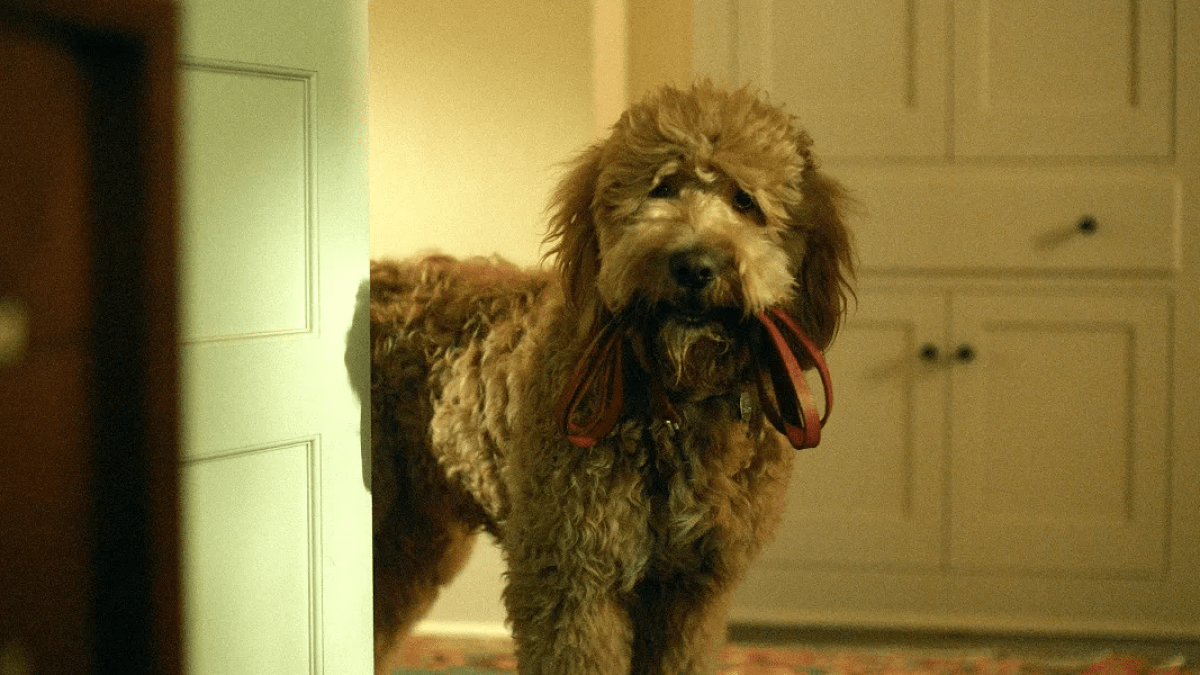There was a time when shows like Lessons in Chemistry wouldn’t be a cause for any concern.
Back in the day, movies and television tended to avoid rubbing out their dog characters. A generation of Baby Boomer filmmakers were too scarred by the events of Old Yeller to even consider passing that trauma on to children. But the world got mean, and I Am Legend came out, and it wasn’t long before movies like A Dog’s Purpose were killing dogs once, maybe twice per act.
And so it bears asking: Does Six-Thirty, the quasi-anachronistic goldendoodle in Lessons in Chemistry, buy the farm? Maybe in a lab accident, or an unfortunate kitchen mixup involving a particularly large roast?
First, the good news: The dog doesn’t die in Lessons in Chemistry. The bad news? He befalls a much more terrible fate. He becomes B.J. Novak.
The unenviable destiny of Six-Thirty
Six-Thirty is an emotional cornerstone of the story of Lessons in Chemistry. He’s the military dog washout welcomed into the Zott household when he’s found at precisely 6:30. He’s also the reason that his beloved new owner, Calvin Evans, gets fully squished by a bus. It’s a startling sequence of events involving a fussy pup, a distractible chemist, and a deeply disappointing transit system.
In the wake of Calvin’s death, Six-Thirty gets a whole episode — “Living Dead Things” — full of a dog-specific side story, suddenly and singularly voiced by The Office star B.J. Novak. He expresses remorse for his part in the death of his owner and offers viewers a dog’s point of view on the days that followed.
And that’s about it. Six-Thirty doesn’t speak again on the show. Despite Lessons in Chemistry’s often bleak outlook on life, the show avoids dramatic, cheap-shot dog death narratives, even after a seven-year time jump. To the best of anyone’s ability to ascertain, 70 years later, Six-Thirty is still alive and kicking, moving from household to household like a furry Mary Poppins, pulling people in front of buses to this day. Wouldn’t that be nice?
On a side note, there’s an argument to be made that the loveable, manslaughtering pooch was just a figment of Elizabeth Zott’s imagination. He is, as we mentioned, a Goldendoodle, a designer breed that didn’t start bounding through American households with any kind of regularity until the 1990s. Maybe Zott conjured the creature in her mind’s eye through her vivid understanding of genetics, placing her own subconscious, irrational guilt at the death of the man she loved on an imaginary creature. Maybe it was all a dream. Or maybe there’s an immortal killer dog with allergy-friendly fur, pushing California families into the public transit lane across the decades. Either way, he’s fine.
